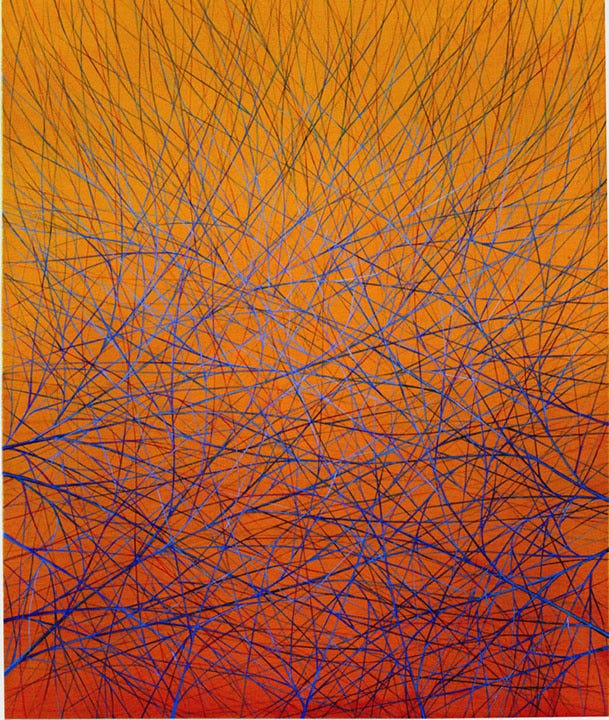How governance could be
Part 2 of a series
I’m a researcher at the UC Berkeley Center for Long-Term Cybersecurity where I direct the Daylight Lab. I’m interested in structural risks to the global internet.
Last time, I talked about why a governable internet would be good—if we had an institution we could trust to the job. This time, I’ll talk about an institution we could trust with an internet.
This post is part of a series.
Background: This Internet, on the Ground
Part 1. Governable internets
→ Part 2. How governance could be
Part 3. What are DAOs?
Part 4. An internet of DAOs
Part 5. Identity bureaus
Part 6. But can it govern?
Part 7. Pockets of liberation
Representative democracy

In representative republican systems, delegates decide issues. While this system uses a democratic process to select delegates, it is not itself democracy.
The best critique I’ve read of representative republics is best summarized by Bookchin (2008):
The state preempts the autonomy of localities and provinces by means of its all-powerful executive and, in republican states, its legislature, whose members are elected or appointed to represent a fixed number of “constituents.” The citizen in a self-managed locality vanishes into an anonymous aggregation of individuals who pay a suitable amount of taxes and receive the state’s “services.” “Politics” in the nation-state devolves into a body of exchange relationships in which constituents generally try to get what they pay for in a “political” marketplace of goods and services.
In blockchains today, it’s no wonder popular sovereignty takes the form of market relations.1 Such is the state of our real-life republics. A small group holds decision-making power, jockeying among others for voting share. The system does not include a meaningful political structure—a social system popularly and commonly practiced—by which delegates’ authority can be recalled or revoked.2 After all, representative leaders have no incentive to make or strengthen such systems.
This is the state of our EU commissions, this is the state of our central banks, this is the state of our global banks, this is too often the state of our city councils, even in small municipalities. (Have you met your city representative? Did you meet with your community to discuss who represents you? To discuss who your local bank can lend to?).
Broadly speaking, a group of people—almost all of whom tend to richer than you are, and none of whom you’ve met—make the only political decisions that affect you.
We do not live, in other words, in a meaningfully democratic society.
Popular assemblies

Equitable governance looks less like the European Council above, and more like this, a popular assembly in Rojava.
This is how all decisions are made in Rojava: direct democracy in popular assemblies. The unit is the local community. Anything that can be handled at this local level is. For anything that can’t be, the community can elect a delegate, who can go on to other communities and stir up a popular assembly of delegates, who can in turn elect another assembly above them, and so on. Complex state structures can emerge from this hierarchy, but everything starts at the locality, at the local community, on the ground.3
This is Athenian-style direct democracy at scale.
I want an internet like that.
Autonomous systems
The internet is divided into autonomous systems, or ASs.
When you connect to the internet, you get your IP address from an AS. In practice, as an end user, that AS is probably your ISP: Comcast, or in my case, a lovely local ISP, LMI. That AS has some finite number of addresses it’s allowed to give out. And, as a paying customer, they provide you with an address you can use to connect to the internet.
Past the router you’re connected to, ASs are the most local level of internet to which you have access. They are the hop directly after your router. The last stop on the internet’s way to you, and on your way to the internet.
The AS is the smallest possible unit of internet: it is the smallest thing that one can call an internetwork, or internet.
So the AS makes sense as the most local unit of internet to have governance over.
AS as popular assemblies
The AS, in other words, is exactly what we’d want to make a popular assembly out of. They are the smallest, most atomic, and most local unit within which governance can occur.
I could, for example, have a vote in my community-run ISP. Should we block QAnon content? Alex Jones? Joe Rogan? I'd at least like it to be the subject of some deliberation. I’d be curious what my neighbors would say.
ASs could block all ads, as Pi-hole does in local networks. It could block ads from certain sources, or that contain particular kinds of content.
It could also prevent users from taking certain actions online.4 Remember: if something’s not getting past the AS, it’s not getting to the internet, nor to any other members of that AS. If you send something your AS doesn’t like, it’s not going to travel outside of your local network.
A dictatorship of the populace
AS-level blocking is how dictatorships censor traffic. This system would be a dictatorship of the local populace.
As I argued last time, knee-jerk reactions to traffic tampering are historical circumstances of existing governments. A just institution could tamper traffic justly—particularly in markets where meaningful competition between ISPs allows choice.
How could such an internet possibly exist?
How could we possibly instantiate an AS over which democratic control is possible? For example, how could we verify people’s identities to prevent double-voting? And how could such an internet possibly scale to become a shared, global communications network?
I’ve got answers. I’ll explain them next time.
Next post → What are DAOs?
Indeed, the governance of many proof-of-stake networks rests with a small set of validators—effectively, a politburo, unelected and unrecallable, who control some massive fraction of the voting shares of the overall network.
The structure of validators is conceptually similar to the structure of global finance. There are a limited number of global banks, only 15-20, tightly integrated through technical systems and informal trust relationships. They come to a consensus, albeit in an old-fashioned way, about the state of the global financial system.
While formal rules may exist to recall authority (recall elections, impeachment; massive redelegations in PoS networks), the social structures that would facilitate this direct action are largely absent.
There are a few ground rules to this system. The right to vote is unalienable once someone reaches the age of majority. Common goods like land, water, and resources are publicly owned See: The Social Contract of the Democratic Confederation of Northern Syria. English translation by Wladimir van Wilgenburg.
For a view of how Rojava’s institutions work in practice, see Thomas Schmidinger’s Rojava: Revolution, War and the Future of the Kurds.
An AS could allow users to vote on who its other customers are. Exiling someone is extreme, and shouldn’t be done lightly! But the AS’s identity systems are going to be self-governing, so it will be up to the AS how to manage its membership. That’s true of any popular assembly. That’s true of any government at all. But the rules by which identities are managed should themselves be subjected to popular governance.
This becomes interesting later, when we think more about ASs as governments themselves.



